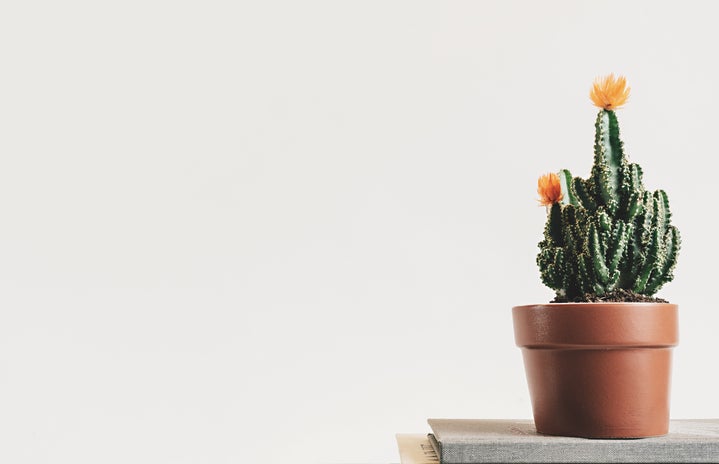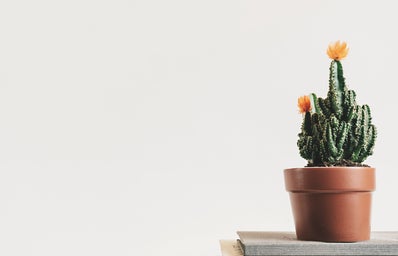All throughout my life up until the present, many strands of memories from throughout my years are riddled with bouts of anxiety. I have always been an anxious person and the fact that I’m perfectionistic, sensitive and a complete and utter control freak doesn’t help.
My bedroom is an artistic expression of myself. Posters, tapestries, paintings, mismatched Christmas lights, plants and crystals – my bedroom is a collective of knick-knacks and memories. There’s a lot of stuff. Normally, all that stuff makes me smile; however, in seasons where my heartbeat never seems to slow down, my room is over-stimulating, with all my stuff triggering a fight or flight response within me. So, to combat this anxiety in these moments, I simply have begun to take everything in my room down. No, seriously – everything. The blankness of my walls and the emptiness of my desk physically and mentally calm me down. I feel as if I can breathe again. It wasn’t until recently that I learned the name for the peace that comes with my blank bedroom walls – minimalism.
For those not familiar with it, minimalism is a lifestyle practice focused on decluttering your life, both mentally and physically. This removal of all the unnecessary can do wonders for relieving your anxiety and here’s how.
1. Minimalism saves time and money.
At the core of minimalism is the implementation of a new mindset that safeguards against the accumulation of any more unnecessary clutter. This means asking yourself questions like “Do I really need this?” before buying something. This approach tosses away frivolous, impulsive spending and also allows you to take back the precious hours of your day, time-wise. When you have less stuff, you avoid decision fatigue or wasting time searching for your keys, trying on different outfits, etc.
2. Minimalism removes over-stimulation.
If you’ve never experienced over-stimulation, I’m honestly happy for you. For those unfamiliar with it, over-stimulation is when your mind is overloaded with information, particularly from chaotic surroundings. It’s when there is so much going on around you that your mind cannot concentrate at all. Suddenly you’re hyper-aware of how loud your television is and the amount of stuff on your desk and the dishes stacking up in your sink and your brain just shuts down. Clutter and mess reduce energy and increase strain on your mind. Our surroundings deeply influence our moods, and minimalism can solve the negativity radiating from the clutter of your belongings.
3. Minimalism reduces worry and comparison.
Minimalism places an extra emphasis on the necessities in life – the things we cherish most. Everything else falls to the wayside. When you implement this practice in your life, you surrender worry about things that simply don’t matter, granting you a touch of inner peace. Similarly, when you selectively focus on the goodness of what matters most, you practice letting go of comparison, of feeling like you absolutely have to have something in order to compare to your friends. Minimalism teaches that our possessions have no say on defining who we are as people, and thus, we are not inadequate for not having the most of the “best” stuff.
Don’t worry about diving headfirst into minimalism and getting rid of everything you own. If minimalism to you just looks like cleaning out your inbox and donating some shoes, I encourage you to do it. 2020 is the year of taking care of ourselves, ladies. Let’s start now, and let’s start with less!
Want to see more HCFSU? Be sure to like us on Facebook and follow us on Instagram, Twitter and Pinterest!




